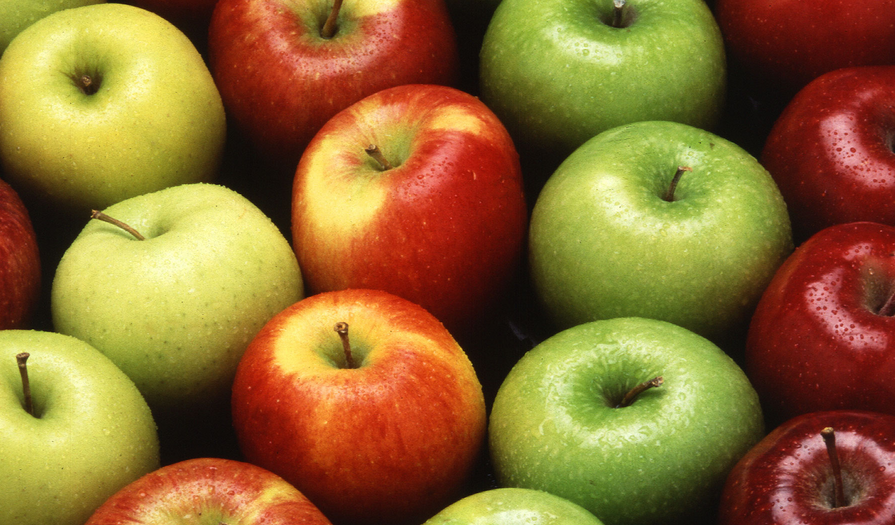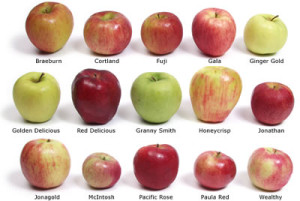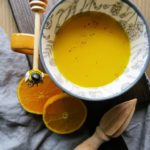The apple is often overlooked as a superfood but the old saying “An apple a day, keeps the doctor away” actually holds value. Apples are full of antioxidants which help reduce the risk of cancer and fibre which helps lower the risk of cholesterol, while low in calories, sodium and fat. There are many varieites to choose and apples can be used any number of ways, making them a wonderful addition to your daily diet.
Nutrients per Serving
See here for nutrition information per serving size.
Nutrients and Associated Health Benefits
– Flavonoids: reduces the risk of cancer, promotes healthy lungs and lessens the occurence of asthma attacks for those with asthma
– Fibre: aids digestions, keeps you fuller for longer, lowers the risk of cholesterol
– Pectin: helps lower LDL (bad) cholesterol, reduces the risk of intestinal cancers and tumor growth, and slows down digestion by forming a gel with water in your body (beneficial to those trying to lose weight and those with diabetes)
– Vitamin C: reduces the risk of heart disease, cancer, and arthritis, and helps strengthen the immue system
– Tartaric Acid: aids digestions by increasing intestinal absorption, improves glucose tolerance
– Vitamin B6: helps reduce the risk of heart disease, helps supress symptoms of PMS, improves memory in older adults, and improves mood
– Potassium: helps maintian healthy blood pressure and heart rate
How to Choose an Apple
When buying apples, look to avoid those with discolourations, soft spots, and bruises. Look for a firm apple to ensure you get a crunchy apple. If you are using the apple for baking, a slighly mushy apple will work better than a crunchy one.
How to Store Apples
You can store apples for up to three days at room temperature. To keep the apples fresh, it is best to store in the refridgerator. Apples can be stored in the refridgerator for up to two weeks. Remember to avoid storing apples with ethylene-sensitive vegetables such as leafy greens, potatoes, and carrots to keep your ethylene-sensitive produce from going bad fast.
More information on ethylene-producing frutis and vegetables and ethylene-sensitive produce will be available in a future post. Please check back.
Apple Varieties
DID YOU KNOW?…
– Fuji and Red Delicious Apples have more antioxidants than other varieties of apples
– Granny Smith apples are a great choice for baking.
– Fruits and vegetables with white coloured flesh such as apples, pears, cauliflower and cucumber, can reduce the risk of stroke. This study claims that adding a couple slices of apple to your daily diet and cut your risk of stroke by 9 percent.
– Apple slices dipped in almond butter makes a very nutritious snack.
– It is best to eat apples with their skin to prevent loss of nutrients. Due to pesticide residue and bacteria, ensure that the apple is washed thoroughly or opt for organic apples.
– If you opt to eat apples without their skins, the amount of fibre decreases by almost a half.
– Apple juice lacks all the nutrients found on the skin of the apple.
– Rinsing sliced apples with water and a few drops of lemon juice, will prevent them from browning.
Feature Image: activ8athleticism.com





